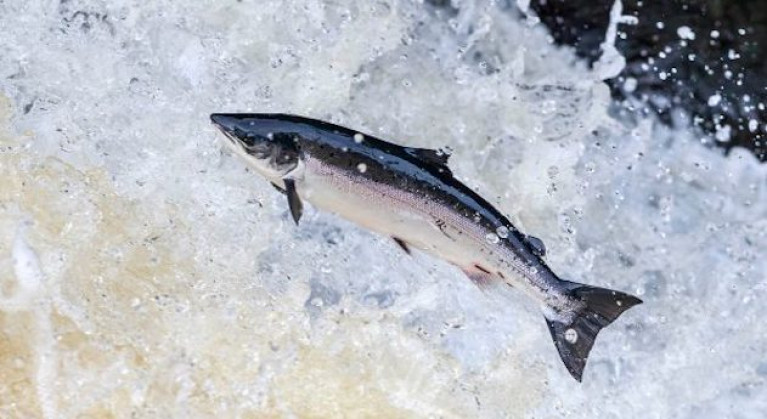New research led by scientists at University College Cork (UCC) which uses genetic fingerprinting techniques indicated that captive-born salmon are far less successful at reproducing as wild salmon spawning in the same river.
“We looked at the lifetime reproductive success of salmon spawning naturally in the wild,” joint lead author of the study Ronan O’Sullivan of UCC ‘s school of biological, earth and environmental sciences said.
“ So for each adult fish that returned to the river from the sea, we counted up the total number of offspring they produced across their lives that themselves survived to spawning age,” he said.
“We used a genetic pedigree coupled with four decades of salmon data from the Marine Institute’s research facility on the Burrishoole catchment in County Mayo. The results show that captive-bred fish that are deliberately or inadvertently introduced into the wild contribute fewer offspring to the next generation than wild fish, and therefore are not a substitute for natural wild spawners,” he said.
“Thus, they do not enhance the conservation status of naturally self-sustaining salmon populations,” he said.
Dr Paul Connolly, Marine Institute of Ireland chief executive officer said that his organisation welcomed the use of Marine Institute data to “answer a question of international significance that is relevant to conservation efforts for the culturally iconic Atlantic salmon”.
“ This analysis underlines the importance of having long–term biological data to allow management decisions to be based on the best available scientific evidence,” he added.
Further research is needed to work out exactly what is happening when the wild and captive salmon mix, UCC says.
However, it says the research team suspects that hybrid offspring produced by matings between captive and wild parents are genetically less well-equipped to deal with life in the river.
If true, this means that the widespread release of captive animals into the wild might actually do more harm than good in many cases, UCC says.
It says the research team comprised an international group of collaborators based at University College Cork, the Marine Institute, Queen’s University Belfast, the University of Helsinki and the University of Edinburgh. Their research findings are published in the prestigious journal Proceedings of the Royal Society B.
The research is available freely via Open Access here

































































